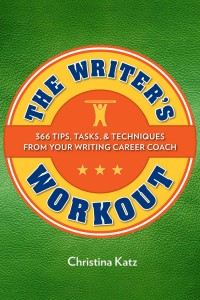
This post is dedicated to the folks who attended the Chuckanut Writer’s Conference this past weekend.
It used to be that I would teach platform as a method of impressing gatekeepers like agents and editors.
And I still take agents and editors into account, but these days, I also teach platform building as business ownership, niche-development, and context creation.
And the reason is because it’s going to take years, not weeks or months, to build a sustainable, profitable platform, so you don’t want to build one just because you have a book coming out or just because you want to have a book coming out some day, because that’s not sustainable.
You want to develop and build a platform to scale your soul, as I describe in The Writer’s Workout in chapter 185:
When an individual expresses what he has to offer, he is expressing his soul. If you don’t exercise your soul, nobody else will know what you are passionate about but you. And if you don’t express your soul, you can’t share it. Therefore, don’t be angry if no one sees it or acknowledges it. You are the one hiding it. What’s stopping you from sharing?
Granted, expressing soul takes time and practice. To start out, most people feel comfortable sharing themselves in a safe space. After that the expression of your soul has to scale, meaning you don’t feel diminished by sharing yours with more people.
If you take a concept that is closely aligned with who and what you are and scale your soul’s expression on a mass level, aligning it with what is meaningful to others, you will accomplish a glorious thing. You can share what moves you most with the whole world.
The fact of the matter is that writers are cottage creatives today. I’m not sure that anyone else teaches platform development in quite this way. It takes a lot of patience and a desire to get to know writers and work with them over time. It takes an understanding that writers today are individuals, who are evolving, not just “talent,” who can be controlled and manipulated.
In growing and steering your platform growth, you need to know intuitively when to say no and when to say yes. Here’s a bit of what I had to say about this in chapter 142 of The Writer’s Workout: Seek Variety
Writers rarely do the exact same things every day. Writers today are cottage creatives. You are the talent, the idea person, the troubleshooter, the coach, the taskmaster, the producer, the trainer, the accountant, or whatever else you need to do on any given day.
The mutable quality of a writing career allows it and you to grow and thrive in directions that may have otherwise gone unexplored. If you only do one thing, you might feel crabby if the economy starts to tank in a way that tips income away from you. Change is inevitable; very few people write and only write in the present world. We are living in the gig economy now, we may as well face it.
But the good news is, you don’t have to be merely a freelancer. You can be a creative. You can script your own career. You can write the soundtrack, the promos, and the copy. You can write talks, curriculum, bios, blog posts, and workshops. Despite how it may appear from the outside, you can be fairly consistent in the variety of things you do over time, in any combination that works for you.
I talk extensively about how to become a cottage creative in The Writer’s Workout. No other book takes this writercentric point of view. No other book tells you what you need to consider as a writer and a business person and a business partner.
What I know about platform development is that it’s not merely about selling a product, like a book, so you should not build it around the selling a product like a book.
I want you to think of The David before Michaelangelo released it from a huge slab of marble.
We are each like that blank slab of marble, only we are not waiting for someone else to lure us out.
We have to lure ourselves out. Coax ourselves out. Go public.
Of course, you are going to need help. You are going to need wise teachers, positive examples, and serious writer friends.
If your teachers are not wise and your examples are not positive and your writer friends are not serious, then these folks may not be helping you succeed…whatever success means to you.
If you want to be successful, you have to be allowed to become successful.
You have to let yourself express yourself.
You have to work hard to alchemize what you express so it can transform from gobbledy-gook into something of substance that is worth sharing.
And you can learn how in The Writer’s Workout, where I weave all the success strategies any writer needs into one book.
Comments on this entry are closed.
This is one of the best posts I’ve ever read on this topic. I will print this out and post on my writing space bulletin board.